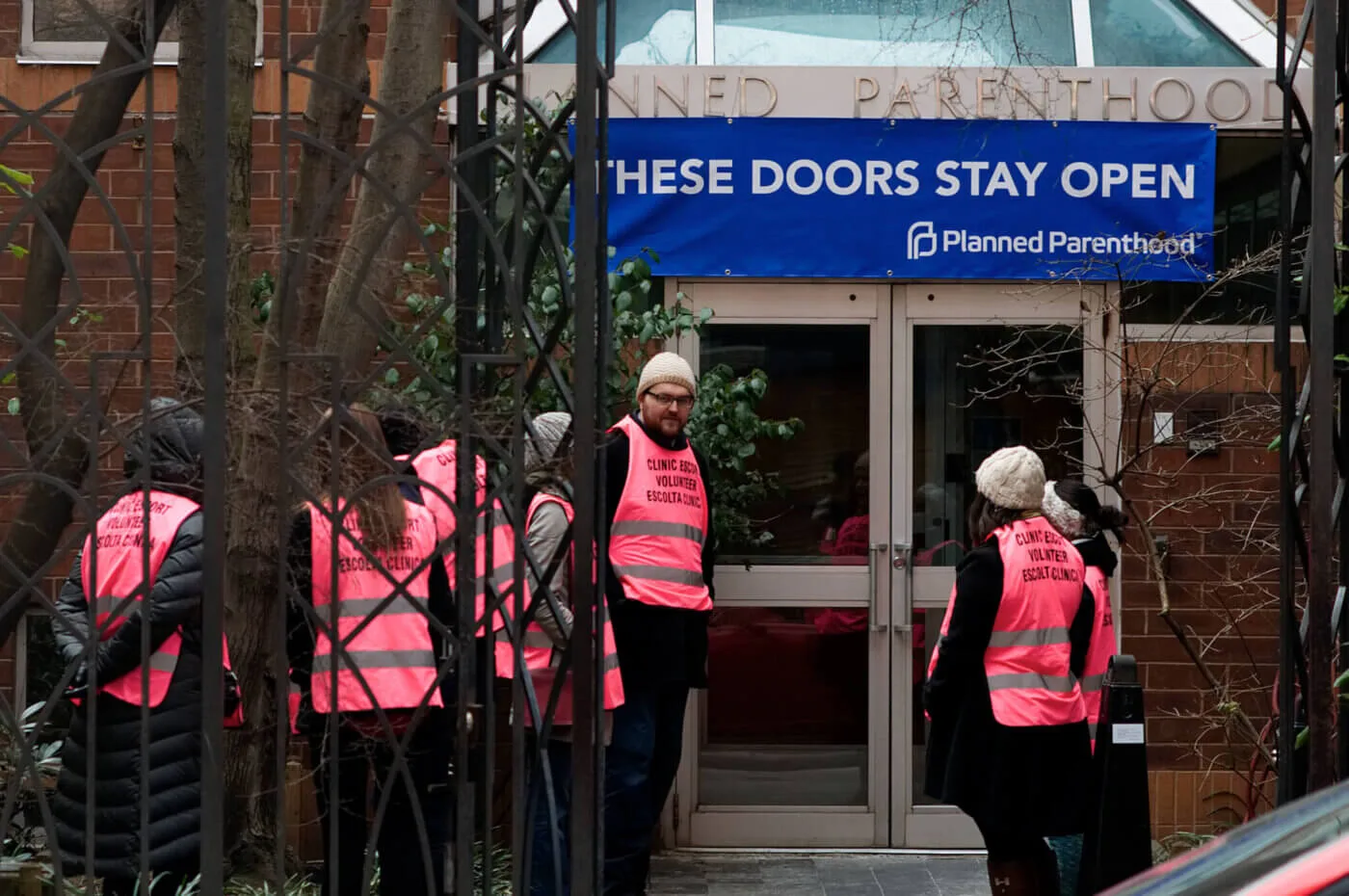
Image via Shutterstock
With employer-provided insurance no longer required to cover birth control, many in Pennsylvania are suffering and struggling to pay for necessary medical care.
In 2019, Abby Schwoyer started getting dizzy spells and would faint without any warning. She went to three different doctors without getting any explanation as to why it was happening.
It was only after the 32-year-old Schuylkill Haven resident mentioned something to her gynecologist that she figured out what was going wrong.
“It seems the brand of birth control pills I was taking, one of the side effects was dizzy, fainting spells,” Schwoyer said. “It was a relief to finally know why I was passing out. I had no idea that was a side effect.”
After discussing her options with her gyno, Schwoyer switched to a different brand of birth control.
“I started taking birth control to regulate my period and help with the severe pain I got every time I had my menstrual cycle,” Schwoyer said. “If I go off them, the pain comes back. It’s unbearable. Now, I also have to be careful about side effects. The brand of pills I am on now are the only ones that don’t make me pass out.”
But the new brand of birth control pills is more expensive—and for someone on a budget like Schwoyer, it can be difficult to swing the new price.
That wasn’t something she had to worry about when she originally started taking them. Birth control was covered by her insurance. But that all changed during the summer of 2020, when the US Supreme Court upheld Trump-era regulations granting employers broad rights to deny their female workers no-cost coverage for birth control by claiming religious and moral objections.
As a result, as many as 126,000 women in Pennsylvania have lost coverage for free birth control through workplace health plans, according to the state government.
“Yes, I don’t want to get pregnant,” Schwoyer said. “But that’s not the only reason I’m on it. That’s not the reason I started taking it. I’ve had to go without it when I couldn’t afford it and I’ve suffered because of it. I’ve had to call off work when the pain got so bad.”
In March 2022, Rep. Leanne Krueger (D-Delaware County) introduced House Bill 2454, legislation that would have expanded access to birth control in the commonwealth. The bill required insurers in Pennsylvania to provide coverage for contraception. The bill never made it out of the House Insurance Committee.
“Contraception is health care, and employers should not be allowed to decide what medical care a woman has the right to receive,” Krueger said. “Access to health care is inextricably linked to economic mobility, and basic preventative care like birth control should not be a luxury that is only available to some.”
In the current state legislative session, no new bills have been introduced to require insurers in the commonwealth to provide coverage for contraception.
“That is ridiculous,” Schwoyer said. “It would cost my insurance so much more if I got pregnant, or had some other medical condition that a simple birth control pill could help with.”
Stephanie Lane uses birth control to get relief from painful ovarian cysts. The 43-year-old mother of four from Enola has suffered from ovarian cysts since she was 11. Her parents would not let her use birth control, which prevents the cysts from occurring, because they were worried she would become sexually active.
“I only wanted pain relief,” Lane said.
When she was 18 and she went to college, Lane was within walking distance of a Planned Parenthood clinic.
“As a college student, I did not have much money but I was able to access affordable birth control,” she said. “I was young and in pain and had no one to talk to. Planned Parenthood was a lifesaver.”
Birth control is essential medication, said Lindsey Mauldin, vice president for Advocacy and Public Policy for Planned Parenthood Southeastern Pennsylvania.
“We support expanding access to reproductive health care so every person, regardless of race, income level, insurance status or where they live has the ability to make their own decisions about their bodies and their futures,” Mauldin said.
The state offers a Family Planning Services program which provides family planning and family planning-related services, pharmaceuticals, including birth control, and supplies to people of any age who meet the income guidelines.
While Schwoyer thinks the Family Planning Services program is good, she doesn’t qualify for it.
“So what do I do now?” Schwoyer asked. “Am I just supposed to suffer even though I pay for insurance through my employer? How is that fair?”
Support Our Cause
Thank you for taking the time to read our work. Before you go, we hope you'll consider supporting our values-driven journalism, which has always strived to make clear what's really at stake for Pennsylvanians and our future.
Since day one, our goal here at The Keystone has always been to empower people across the commonwealth with fact-based news and information. We believe that when people are armed with knowledge about what's happening in their local, state, and federal governments—including who is working on their behalf and who is actively trying to block efforts aimed at improving the daily lives of Pennsylvania families—they will be inspired to become civically engaged.


Contraception is health care: Pennsylvania House passes bill to expand birth control access
With employer-provided insurance no longer required to cover birth control, many in Pennsylvania are struggling to pay for necessary medical care....

Trump administration revokes guidance requiring hospitals to provide emergency abortions
WASHINGTON (AP) — The Trump administration announced on Tuesday that it would revoke guidance to the nation's hospitals that directed them to...

From clinics to crisis: Pennsylvania women will feel the pain of Medicaid cuts
In Pennsylvania, about one in every five women of reproductive age is enrolled in Medicaid. Dozens of family planning clinics throughout the state...

House GOP fast-tracks budget bill that would cut off Medicaid funding to Planned Parenthood
The budget package proposes steep health care cuts—and includes a new push to block patients from accessing reproductive care. In a 30-24 party-line...

State lawmaker wants to end mandatory counseling and waiting period for abortions in PA
A proposed bill from Democratic lawmakers would remove hurdles to getting an abortion in the state by taking away the currently mandated counseling...





